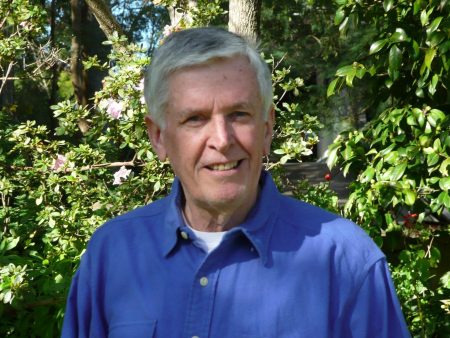John Tulloh. Return to the Syrian battlefield.
September 7, 2015
Foreign (military) adventures have long appealed to insecure leaders, wrote the veteran British journalist, Sir Simon Jenkins, in the right-wing Spectator magazine. Those whove had no experience of war seem to crave it. He was referring to British Prime Minister David Camerons renewed enthusiasm to get involved in Syria. He could just as well have been referring to another conservative leader, our own Tony Abbott.
His cabinet this week is expected to approve what he reportedly is keen for, namely to extend Australias involvement in Iraq to the Syrian battlefield. This would mean joining a small US-led coalition force of air power targeting Islamic State (IS) or Daesh, as Mr Abbott calls it. It fits in well with his frequent mantra about anything related to national security, no matter how far away it is.
Australia is no military stranger to what is independent Syria today, having been involved there in both world wars.
In 1918, troops of the Australian Light Horse were first into Damascus, driving out the Ottoman occupiers of what was then known as the Arab Levant. But popular history overlooks the Australian role, preferring the myth that it was no less than Lawrence of Arabia and his Arab army which captured Damascus and sent the Turks fleeing.
The facts are that the Australians entered the city at 5am on October 1, 1918, paving the way for the Lawrence forces to enter later the same day. The Arabs were given the credit for propaganda purposes and historians have tended to go along with this as what actually happened.
In 1941, Australian troops and this time the RAAF were back in Syria, now a French mandate, to help fight the pro-German Vichy forces. The intention was to prevent any German move into the eastern Mediterranean. The Australians suffered 416 killed and 1136 wounded. It was only later that Australia learned the Germans had no intention of getting involved there. Its new focus then was the attack on the Soviet Union.
But in 21st century warfare it is hard to see what, if any, impact a handful of RAAF fighter-bombers would have on a ground force like IS which has melted into local communities and is scattered across a vast terrain representing one-third of Syria as well as part of Iraq.
Defence Minister Kevin Andrews was very cautious about how far Australia would dip its toes into the sands of Syria. He told the governments favourite mouthpiece, The Australian, that RAAF missions would be planned in advance rather than be hot pursuit operations. He rejected claims that the bombing to date had achieved little.
But the reality is that IS is still firmly in charge of Mosul, Iraqs main northern city, and Raqqa, its capital in Northern Syria. Indeed, according to Al Jazeera, some in Raqqa say life is better despite ISs brutal approach to law and order. IS reportedly has brought stability to daily life by restoring the power supply, painting road signs, introducing a new education system and imposing taxes.
The best that could be said is that, unlike most of the world, we in Australia are taking action against a vicious and dangerous organisation. But at the same time the law of averages says innocent lives will be lost, even more refugees will be on the move, more grievances created and more jihadists will want to join IS.
Abbotts enthusiasm to get involved is hard to reconcile when you consider the coalition consists of just the US, Jordan, Saudi Arabia, the UAE, Canada and Turkey, though the latter seems more interested in attacking Kurdish targets. Britain is hinting it might get involved, but that would have to wait until next month when parliament resumes.
Syria is a tangled political web like none other. In addition to IS and the coalition air forces, there are the al-Qaeda offshoot, the Nusra Front; another militant Islamic organisation, the anti-government Ahrar al-Sham; the Free Syrian Army now in disarray; the Kurds and, of course, the demoralised Syrian armed forces.
In addition, Russia is stirring the pot. Recent news reports suggest Moscow, a long-time ally of Syria, intends to expand its aid to prop up the regime of President Bashar al-Assad. According to the London Daily Telegraph, _s_peculation is growing that Russia has significantly expanded its involvement in recent months, including deliveries of advanced weaponry, a raft of spare parts for existing machines, and the deployment of increasing numbers of military advisers and instructors. President Putin has not ruled out military intervention, leading Washington to worry it might even lead to a confrontation with the US-led coalition. This should particularly concern coalition pilots as Russia has supplied Syria with advanced air defences, including missiles.
Crushing IS might lead to a much bigger problem: what to do with a hopelessly fragmented Syria when it has other violent groups jostling for power. We should beware of getting entangled.
FOOTNOTE: It is possible we could see Australia fighting on - or at least from - Turkish soil for the first time since the Gallipoli debacle 100 years ago. According to The Australian, Canberra has been in touch with Ankara about the possibility of operating from the Incirlik air base in SE Turkey, though it says it has no plans at this stage.
John Tulloh had a 40-year career in foreign news.
